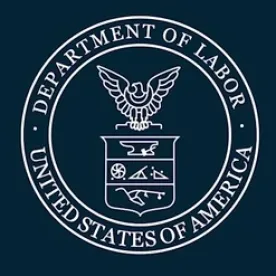On August 31, 2020, the Wage and Hour Division of the U.S. Department of Labor (DOL) issued four opinion letters, one of which, Opinion Letter FLSA2020-11, addressed whether certain employees in the oilfield services industry were exempt from the overtime requirements of the Fair Labor Standards Act (FLSA). The specific question answered by the DOL in FLSA2020-11 involved truck drivers of an oilfield waste-removal company and the “retail or service establishment” overtime exemption of the FLSA (29 U.S.C. § 207(i), better known as the “Section 7(i) exemption”). The DOL considered the facts and circumstances of the industry and work performed, as well as legal precedent and recently modified changes in FLSA regulations, and determined that the drivers appeared to qualify for the overtime exemption—reversing 50 years of regulatory exclusion.
The opinion opens the door for more businesses to qualify for exemption as retail or service establishments under the DOL’s stated goal, announced in May 2020 when the agency withdrew certain establishment lists, of “promot[ing] consistent treatment when evaluating section 7(i) exemption claims by treating all establishments equally under the same standards and permit[ting] the reevaluation of an industry’s retail nature as developments progress over time.”
Background and History of the Section 7(i) Exemption
The opinion letter states that Section 7(i) of the FLSA exempts from overtime pay requirements “certain employees of ‘retail or service establishment[s]’ … (1) who work[] at a retail or service establishment; (2) whose regular rate of pay exceeds one and one-half times the federal minimum wage; and (3) whose earnings in a representative period are composed of more than fifty percent commissions.”
The DOL has interpreted the threshold “retail or service establishment” factor as follows: “(1) a business must ‘engage in the making of sales of goods or services’; (2) ‘75 percent of its sales of goods or services, or of both, must be recognized as retail in the particular industry’; and (3) ‘not over 25 percent of its sales of good or services, or of both, may be sales for resale.’”
Citing 29 C.F.R. § 779.318(a), the DOL noted that the establishment must also have a “retail concept,” which means it typically:
-
“sells goods or services to the general public;”
-
“serves the everyday needs of the community;”
-
“is at the very end of the stream of distribution;”
-
“dispos[es] in small quantities [its] products or skills;” and
-
“does not take part in the manufacturing process.”
When the Section 7(i) exemption was added to the FLSA in 1961, the DOL issued an interpretive rule listing 89 types of establishments that it viewed as lacking a “retail concept.” In 1970, the DOL added a list of another 45 establishments, including “waste removal contractors,” that blocked the exemption’s application to oilfield service companies and drivers, such as the ones at issue in Opinion Letter FLSA2020-11.
At the time Section 7(i) and its interpretive regulations were enacted, the courts and the DOL still held to the prohibitive standard that exemptions from the FLSA were to be “narrowly construed” against employers, and in order to qualify for them, establishments were to be “plainly and unmistakably” within the terms and spirit of the exemptions. With regard to retail and service establishments, the exclusionary list borne from this standard endured for 50 to 60 years.
While the DOL’s list was often attacked by the courts as “arbitrary,” “incomplete,” and even “mindless,” it wasn’t until 2018 and the Supreme Court of the United States’ order that FLSA exemptions be viewed through a “fair (rather than a ‘narrow’)” interpretive lens that the list’s value and existence became seriously questioned. Once Encino Motorcars, LLC v. Navarro, 138 S.Ct. 1134 (2018), opened the door to revisit long-held hostilities toward claimed exemptions, it was only a matter of time before stale and outdated standards were modified, replaced, or removed. This included the oft-criticized, anachronistic nonretail list, which was removed from the regulations on May 19, 2020.
Application to Oilfield Waste Removal
After its express exclusion was removed, an oilfield waste removal company sought an opinion from the DOL regarding whether the Section 7(i) exemption applied to certain truck drivers who used heavy-duty trucks and equipment to remove fluid waste from customer oilfield sites and transport it to disposal facilities. The pay rate and commission percentage prongs were met, so the only issue was whether the company qualified as a “retail or service establishment.”
The DOL first determined that the removal of oilfield waste from customers’ oil well locations satisfied the “sales of goods or services” requirement for Section 7(i) exemption and that the fact that the services were sold to commercial entities did not matter. As for the recognition of those services as “retail,” the DOL noted that the requirement could be supported by the opinions of industry leaders but the establishment still needed to have a “retail concept” to meet the criterion. The DOL acknowledged the criticism of the former exclusionary list and vowed to apply the same analysis to all establishments to determine their “retail concept,” thus reading the Section 7(i) exemption more consistently. Unchained from the list that automatically disqualified it, the oilfield waste removal company could now satisfy the retail concept criteria.
With regard to the “general public” criterion, the DOL determined that services performed for a commercial user may qualify “‘so long as [they] do not require the use of specialized facilities or equipment and the services are not different services than those provided for the general consuming public.’” (Brackets in original.) Providing the example of the use of the same services and equipment for waste removal from rural septic tanks, the DOL found that the “general public” requirement was met. Likewise, the oilfield service company’s removal of waste was deemed to serve “the everyday needs of the community,” and sales of its services to oilfield customers were at the end of the distribution chain and not sales for resale. Since the waste removal companies were not involved in the manufacturing process, the only question left unanswered was whether the company met the “disposing in small quantities” factor, which depended on how the trucks and the quantities of waste removed compared to those typically found in general consumer waste-removal services. The DOL concluded that overall it appeared that the company had a retail concept and could qualify as a “retail or service establishment” eligible to claim the Section 7(i) exemption for its truck drivers.
Conclusion
While the DOL’s finding of a possible Section 7(i) exemption for oilfield waste removal companies is certainly important, the DOL’s analysis in its opinion letter has much greater, far-reaching implications for the more than 130 industries previously excluded from the exemption. Indeed, for half a century the prospect of a Section 7(i) exemption was a nonstarter for a broad and diverse section of the workforce. Now, the DOL has given the go-ahead to examine the possibilities, and the Supreme Court has laid the groundwork for a fair interpretation of a claimed exemption. Employers previously included on the nonretail list may find this an opportune time to analyze job classifications and pay practices to see if the previously forbidden Section 7(i) exemption is available.




 />i
/>i

